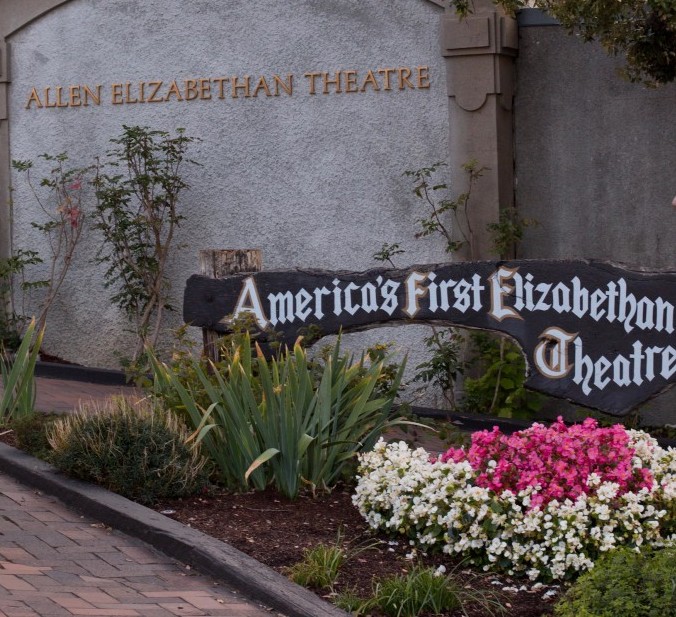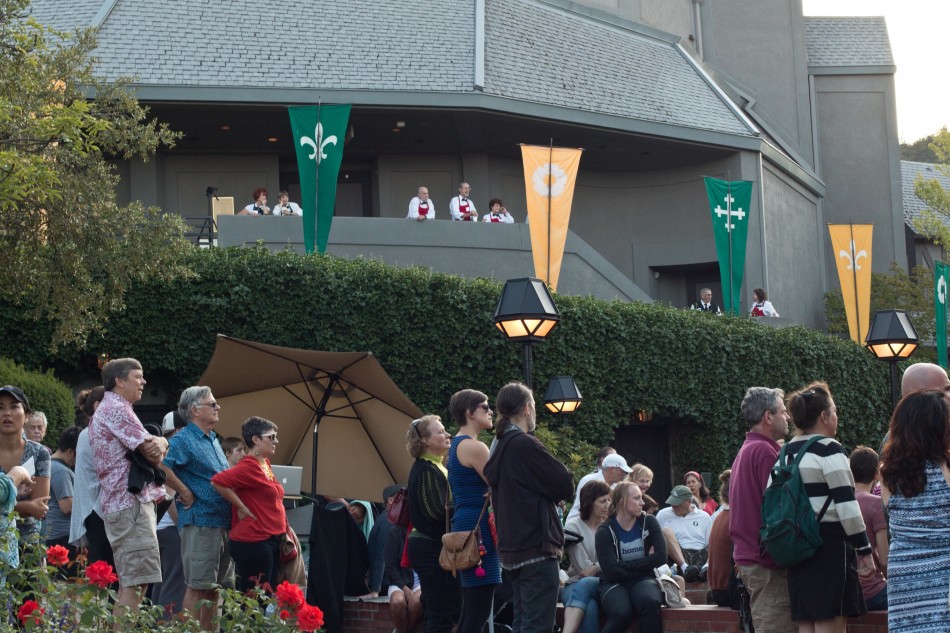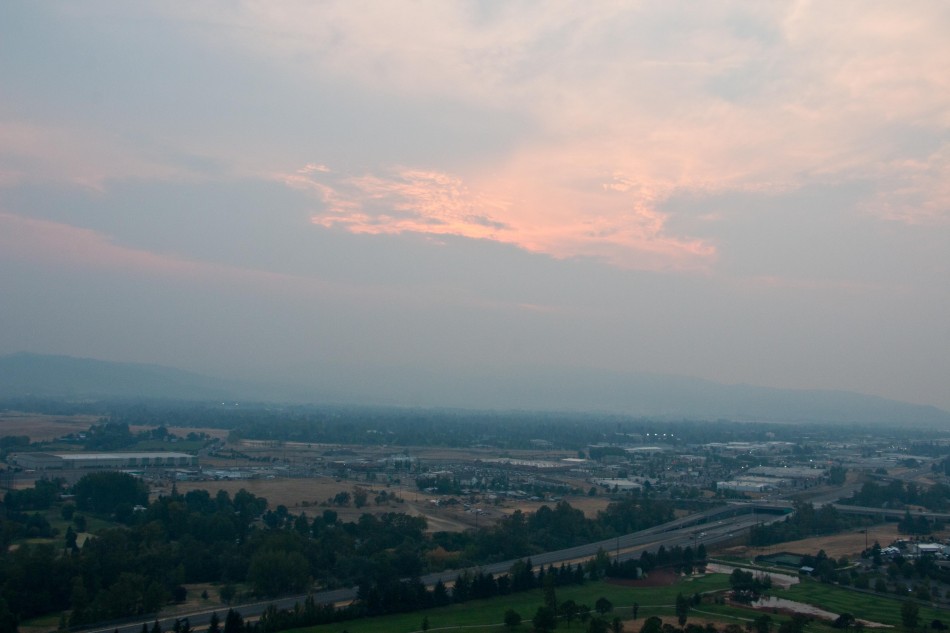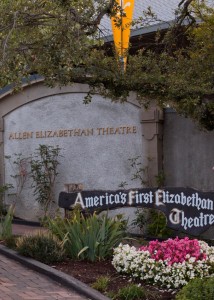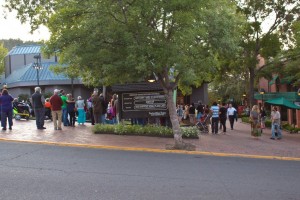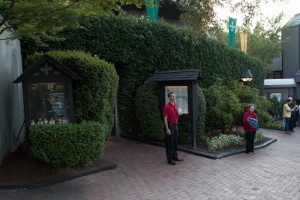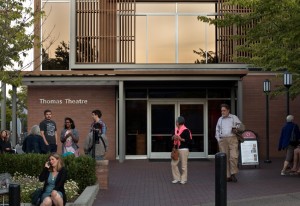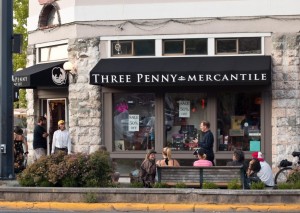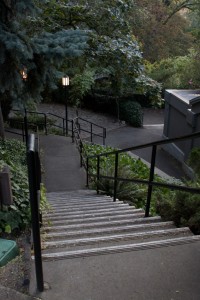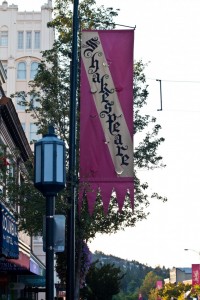In late August Theater PIzzazz’s JK Clarke traveled west for a brief visit to Ashland, Oregon, home of the world-renowned Oregon Shakespeare Festival, one of the longest running Shakespeare Festivals in the country (est. 1935, now in its 80th season). Its artistic director is Bill Rauch, who directed All The Way winner of the 2014 Tony for Best Play. This is Mr. Clarke’s letter from the road, which will be followed by a review of Lynn Nottage’s Sweat, in its world premiere this year at OSF.
Theater Pizzazz Goes to the Oregon Shakespeare Festival!
by JK Clarke
After a long drive up Interstate 5 from the San Francisco Bay area there is nothing more gratifying than cresting the Siskiyou summit and descending into the Rogue Valley, the home of the Oregon Shakespeare Festival (OSF) and a quaint little hamlet called Ashland.
I grew up making this trek at least once a summer when my family would travel to Ashland for a weekend of Shakespeare plays with the Great Books Society of Portland, Oregon. We’d see at least three, sometimes four, plays and follow up with formal discussion sessions the next morning. The trip is no longer as arduous as it once was, with robust, air conditioned modern vehicles reducing the six hour trip by at least an hour. That still doesn’t diminish the thrill of the final 10 miles or so, gliding downhill at 6% grade into Ashland, looking forward to great theater and, more immediately, finding some much needed relief and a chance to stretch. In late August I made that trip for the first time in many, many years.
This year the valley was filled with smoke and haze. It looked like Los Angeles in the 1970s and smelled like a campfire. The source was the countless wildfires along the west coast, caused by the region’s worst drought in decades. And, as a consequence, for only the second time in the OSF’s history, several outdoor performances were cancelled. Though patrons were also quite uncomfortable with the smoke conditions, the Festival admirably cited concern for the actors, whose vocal cords and lungs were at great risk. This was especially a problem this year because two of those outdoor productions are musicals: The Count of Monte Cristo and Head Over Heels. It’s one thing to act in these adverse conditions, but quite another to sing. According to sources at OSF, the U.S. Environmental Protection Agency says exposure to the fine particulate in wildfire smoke can be linked to heart attacks, respiratory problems and premature death for people who have heart and lung disease. One can imagine these problems magnified under the physical demands of belting out a musical number. So, the Festival, at the risk of a $65,000 loss (insured, thankfully) per sold out performance, chose to postpone. As of this week only six performances had been cancelled, and with a little luck that will be it for the remainder of the season. But that could change in a heartbeat: a lightning strike or a carelessly tossed cigarette could easily spark the bone dry evergreen forest that makes up the majority of the vegetation in the region. While summertime fires and smoke conditions are nothing new, OSF’s prioritization of the actors’ long-term health is both prudent and admirable.
The Oregon Shakespeare Festival has built up, over the years, to three theaters that operate from February to November, producing eleven plays in repertory per season. The main stage, The Allen Elizabethan Theater (the “Allen” part was recently appended thanks to a substantial donation by Microsoft co-founder and patron-of-the-arts, Paul Allen) is an outdoor theater with a pavilion reminiscent of the Globe and a seating capacity of 1200; the Angus Bowmer is a 600 seat, state-of-the-art indoor theater built in 1970 that runs daily matinees and evening performances of plays in repertory with often radically different sets that are swapped out in a matter of hours; and the relatively new, Thomas Theatre, which replaced the 138 seat black box theater The Black Swan, with a maximum capacity of 360 that can be used as a four-sided, three-quarter thrust or avenue theater. With the diverse array of theater types, the Festival is able to present everything from classical and traditional shows to intimate cutting edge productions, including the world premiere this year of Lynn Nottage’s Sweat, which will be reviewed here shortly. Interestingly, OSF chose the smaller, Thomas Theatre for their staging this year of Shakespeare’s Pericles, Prince of Tyre, while going the more unorthodox route of staging two non-Shakespeare musicals on the outdoor stage.
If destination theater is a new idea for you, it might be worth considering a visit. Just about everything in Ashland is theater-oriented, a pleasant, hilly little town with equal parts quaint shops and homey restaurants with cutesy theater-related names like Paddington Station, Puck’s Doughnuts and Three Penny Mercantile; all framed with by a pleasant creek-lined park designed by John McLaren, architect of San Francisco’s Golden Gate Park. Prior to plays there are dance performances in the courtyard outside the theater, then the crowd breaks heads to their performance or to dinner.
Next year’s OSF lineup promises to be exciting, with Hamlet, Twelfth Night, Richard II, Timon of Athens and The Winter’s Tale filling out merely the Shakespeare portion of the playbill (the rest of which you can see here). As a Shakespeare aficionado, I cannot begin to to express my excitement at such a dynamic selection. And hopefully the only atmospheric conditions the Festival will have to contend with will be rain.
So, here’s to next year in Ashland!
photos by JK Clarke


